Final Straw Foundation Eco-Conference
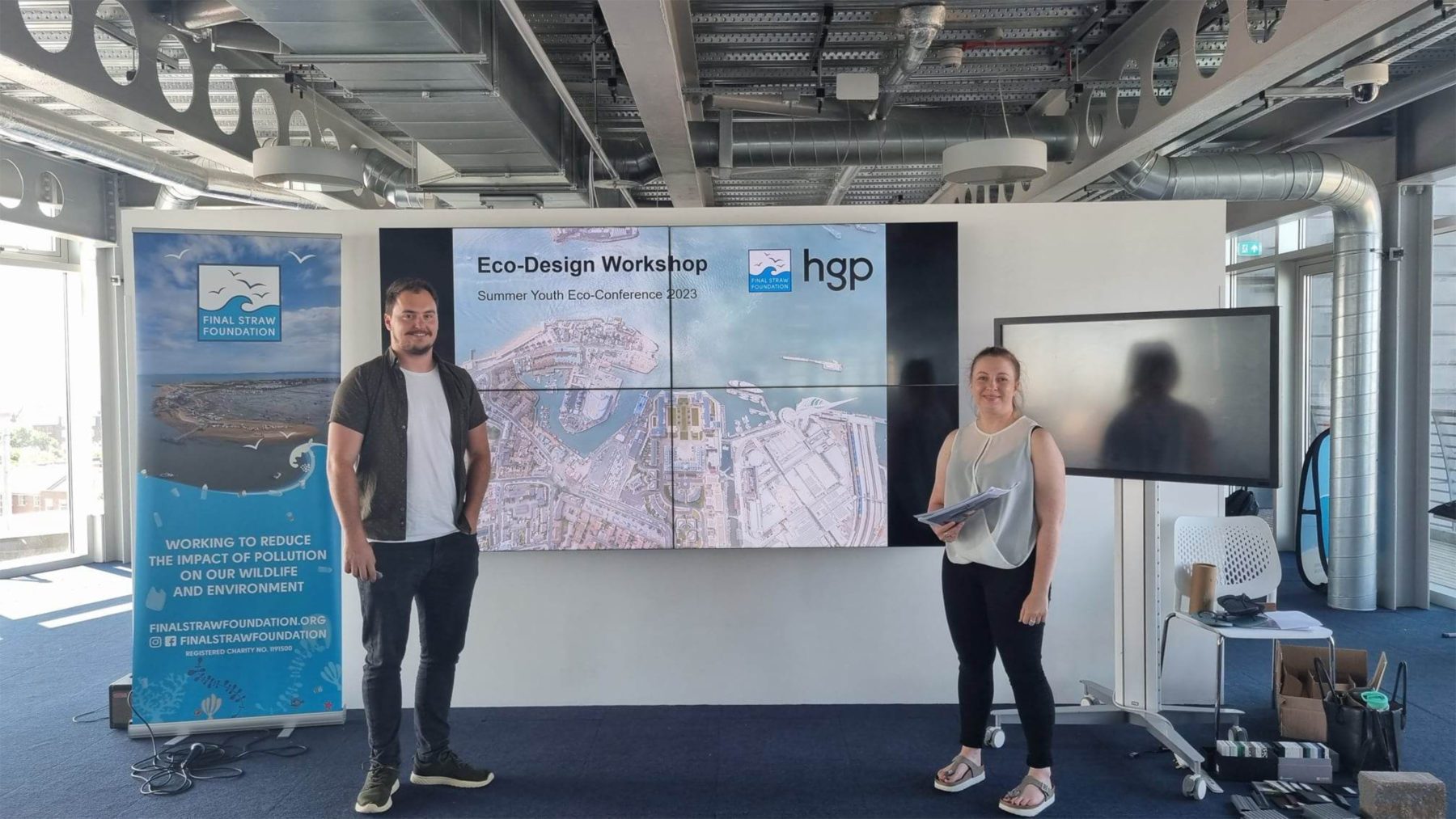
At HGP, with a legacy of landmark waterfront developments along the south coast, we’ve long been committed to sustainability in preserving and enhancing precious waterfronts with thoughtful design and enduring architecture. We are aware that the construction industry is a huge contributor to waste and ocean pollution and although we strive to change this through architectural practice, we believe there is more we can do to take care of our local coastlines and marine environment.
HGP have teamed up with local charity, Final Straw Foundation to support them in their mission to highlight the impact of plastic pollution on our environment, and to try to minimise the amount of plastic entering our local seas and wider oceans. Their fantastic work includes organising beach cleans along the South Coast, working with local businesses to help them find ethical and sustainable alternatives to single-use plastic, and organising workshops and EcoClubs for local school children, inspiring the next generation to help protect our planet.
Earlier this year, HGP were invited to host a Workshop at Final Straw Foundation’s Youth Eco-Conference, an event centred around the themes of hope, innovation and environmental action.
Read on for more about the Youth Eco-Conference and our relationship with Final Straw Foundation.
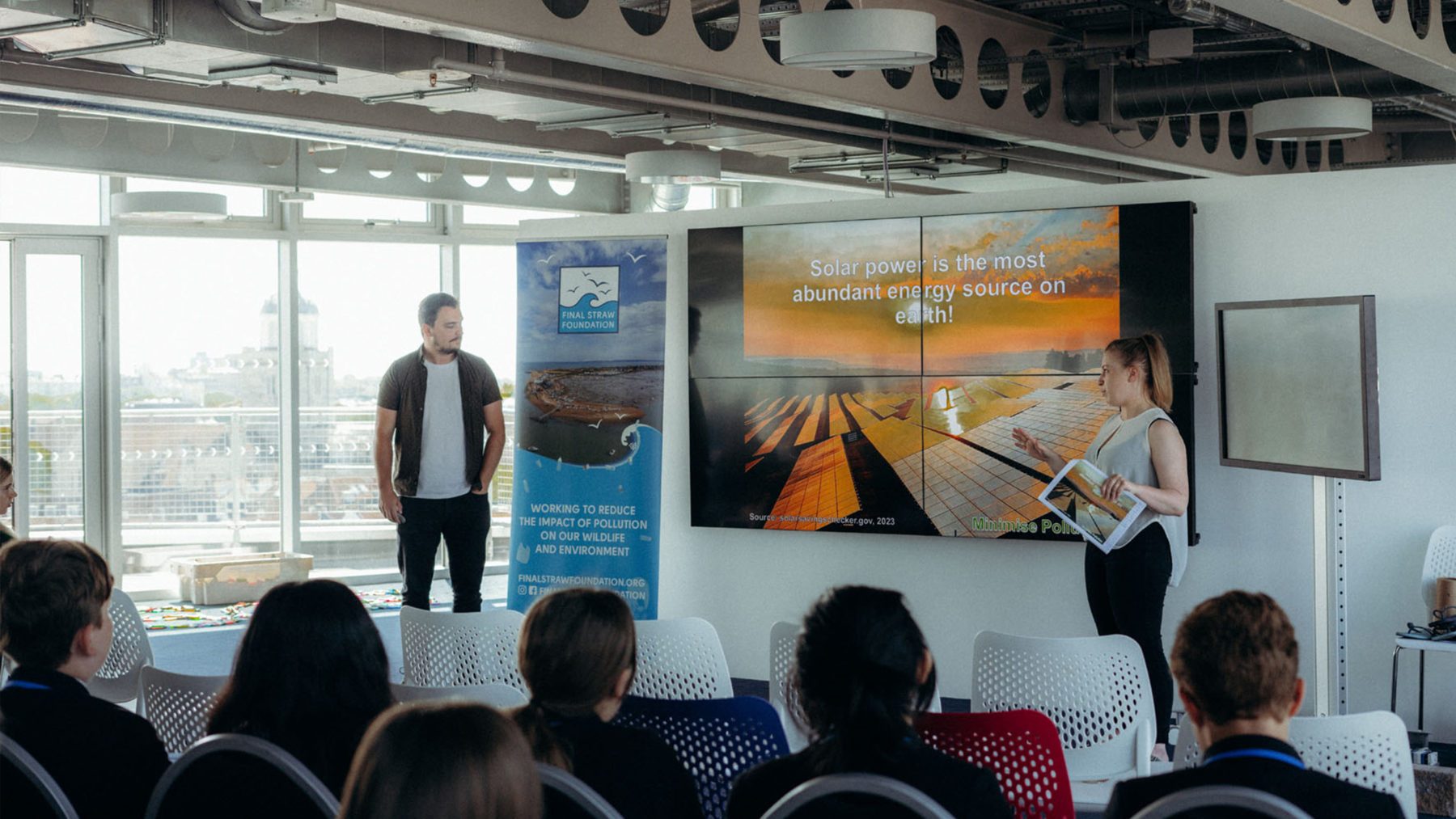
Why did the Final Straw Foundation’s mission strike a chord with HGP?
Single-use plastics are ever-present in our daily lives. From disposable water bottles to straws, packaging, and more pertinent to our industry, building materials, these items have permeated every aspect of modern living. While convenient, their prevalence comes at a significant cost to our planet, particularly our oceans.
Taking centuries to break down, these materials persist in our environment long after their intended use. Fragmenting into microplastics, we know they threaten marine life, from seabirds to whales, and even the fish we consume. This alone should strike a chord with anyone and be an immediate call to action.
Added to this, the sheer nature of construction generates impact, regardless, on its immediate and wider environment and not least in it’s generation of material waste, so it’s vital that the construction industry evolves, creates and innovates to minimise and mitigate against its own, negative effects.
We’re always looking to minimize our ecological footprint. With a portfolio of notable coastal schemes, our decision to align with an ocean conservation charity is not just a symbolic gesture; it’s a concrete step towards mitigating the waste crisis in what is essentially ‘our backyard’.
Local community initiative organisation, Final Straw Foundation, has a mission to highlight and minimise the amount of plastic entering our local seas, improve sea and marine life health and generally clean up our local coastlines. The charity estimates near 12 million tonnes of plastic enters our oceans each year. With construction playing both primary and secondary contributor to the issue, it was only fitting that we reached out to Final Straw as part of our own strategic objectives, to help do our part.
By supporting their initiatives, we aim to contribute to the restoration and protection of our oceans, within our own work environment via ISO14001 accreditation and in practice through the design and delivery of projects, particularly coastal schemes, to help safeguard marine ecosystems for future generations.
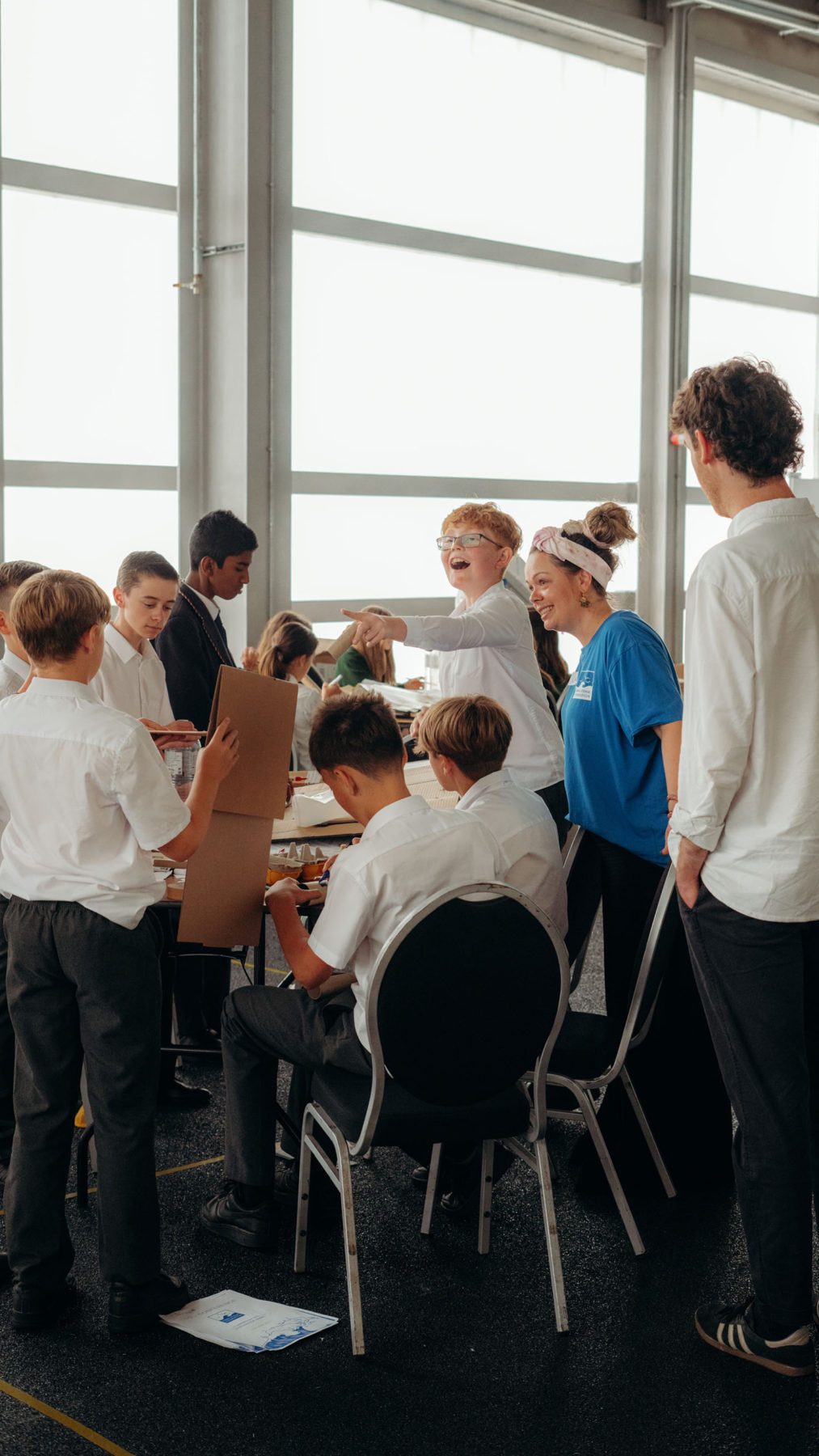
HGP and the Final Straw Foundation Youth Eco-Conference
Our commitment to environmental responsibility and to offer support, our time and where relevant our expertise to a local charity is at the heart of our core value and goes hand in hand with our company objectives.
In a climate of increasingly overwhelming environmental challenges, particularly the battle against waste and its impact on our waterways and oceans, we are alert to the fact that some issues demand immediate attention and looked to take our commitment a step further.
Final Straw Foundation have built upon their initial focus of encouraging business to cut back on disposable plastic to introducing school outreach programmes and public initiatives to educate the local community and young people in reducing waste, guiding more sustainable choices, and encouraging and facilitating the remediation of the existing pollution where possible.
One of Final Straw’s most enterprising and engaging initiatives is their Youth Eco Conference. The conference is aimed at providing school aged children with real life examples relevant to them of where non sustainable practices are having adverse impact on the environment and how they can be the change by making more sustainable choices. Tackling issues of fast food, fast fashion and climate change, they are also encouraged to imagine their own solutions.
Whilst we have previously made donations to and got involved in a local beach clean-up with Final Straw, we were hoping for a chance to continue our involvement and find a way we could use our expertise and enthusiasm to help tackle waste issues stemmed from construction and give back to our local community. So, when they asked us if we would like to be part of the Eco Conference and run a workshop, we jumped at the opportunity to not only continue building a collaborative relationship but to also rise to the challenge of informing young people and potentially future designers of the responsibility of everyone and the built environment to hope, innovate and take action.
Architecture and Oceans!
As architects we know that construction provides for the very basic human need for shelter and is a vital part of urban development. However, what HGP learned as part of our preparation for the workshop we hosted at the Eco Conference, was that it also generates a staggering amount of waste and is attributed to 62% of all of the UK’s waste, taking up valuable space and contributing to the release of harmful greenhouse gases and pollutants. Unnecessarily exacerbating the issue is the fact that 13% of site deliveries go straight to waste, often due to damage and excess packaging.
While it may seem a detached notion, construction waste also plays a significant role in ocean pollution. Rainwater runoff from construction sites can carry debris and pollutants into nearby rivers and streams, and improper disposal can cause debris to contaminate soil and water, ultimately making their way to the ocean. This contaminated runoff harms ocean health, marine life, and contributes to the growing problem of plastic pollution in our seas.
The link between construction and ocean pollution is not as obvious as finding remnants of well-known fast-food packaging on beaches, so as architects it’s important to inform ourselves and build awareness of the unseen effects of a product that everyone has in common, the built environment. Why we have stepped up our own involvement through participation in programmes like the Final Straw Foundation Youth Eco Conference, is clear:
Impact: The issue is not confined to a single region or development. It’s a regional, national and global crisis that affects oceans locally and worldwide. By tackling this issue locally, we are contributing to a global solution.
Real Results: Collaborating with and supporting Final Straw furthers the success of collective ambition and allows us to help make tangible change. Whether it’s participating in beach clean-ups, or raising funds for the next Fish Sculpture to collect single-use plastics, we are able to see the positive difference of our contributions.
Educational Opportunity: By championing this cause, we are privileged to be in a position to educate our employees and clients about the importance of considering sustainable industry solutions to reduce waste and single-use plastics to preserve our oceans and marine life.
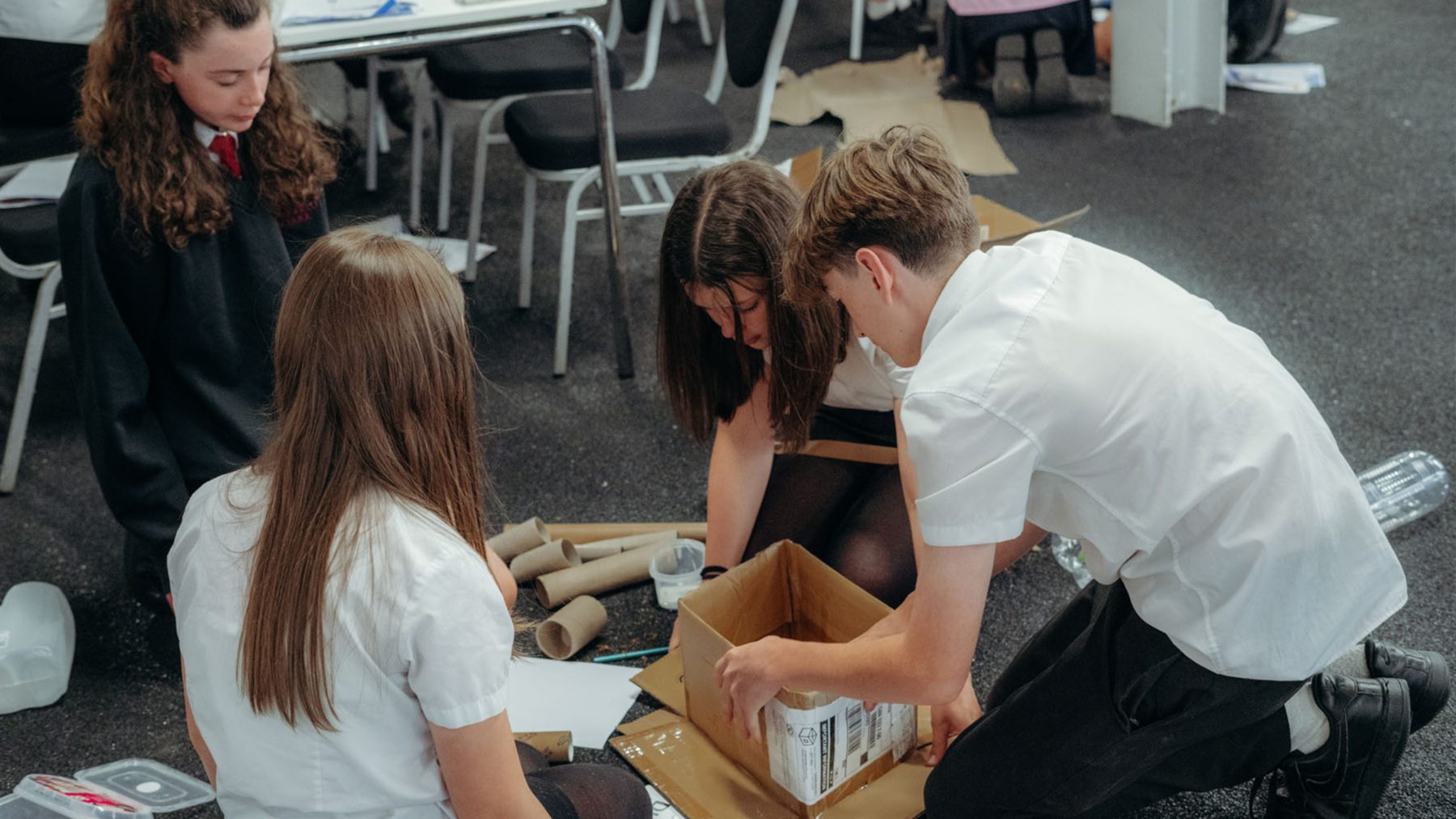
What can we do to combat ocean pollution?
Every business has the ability to reduce their impact on the environment, something HGP is continually striving to improve. We have recently applied for and are awaiting confirmation of ISO14001 accreditation, an international standard setting requirements for businesses to have an environmental management system. Beyond this, we believe the Architecture profession is in a position to influence the decisions made by clients, contractors and other industry professionals, and the future impacts and use of our built environment.
Whilst it’s important to be honest and alive to the very real issues the construction industry faces, it’s equally important to note the positives and if we take on board this year’s theme from Final Straw Foundation’s Youth Eco Conference of hope, innovation and environmental action we know that there are ways and means to start combatting the issue through considered decision making and diligent delivery. Including;
Using sustainable materials: Both recycled and those that can be recycled through a sustainable chain, promoting a circular economy.
Sustainable energy sources: Innovate with natural climate control methods of orientation, fabric efficiency, solar, air and wind power systems.
Designing for re-use and deconstruction: Where parts can be disassembled and reused for a future project.
Zero-waste sites: Employing considered and careful approaches to procure and protect materials and planned waste management
Educational Initiatives: Take part in projects like the Youth Eco Conference or by providing professional workshops, seminars and educational programmes by other means to inspire community change.
Advocacy and Reform: Collaborate and partner with like-minded groups to use the power of the collective to advocate and promote more environmentally responsible practices.
Through being part of the Eco Conference, researching for our own workshop, we ourselves were encouraged to learn how well placed the UK is to power the country with wind. The UK is geographically one of the best places in the world for wind with 25% of the country already powered by wind. This is inspiring and gives cause for hope, as a result of innovation and environmental action.
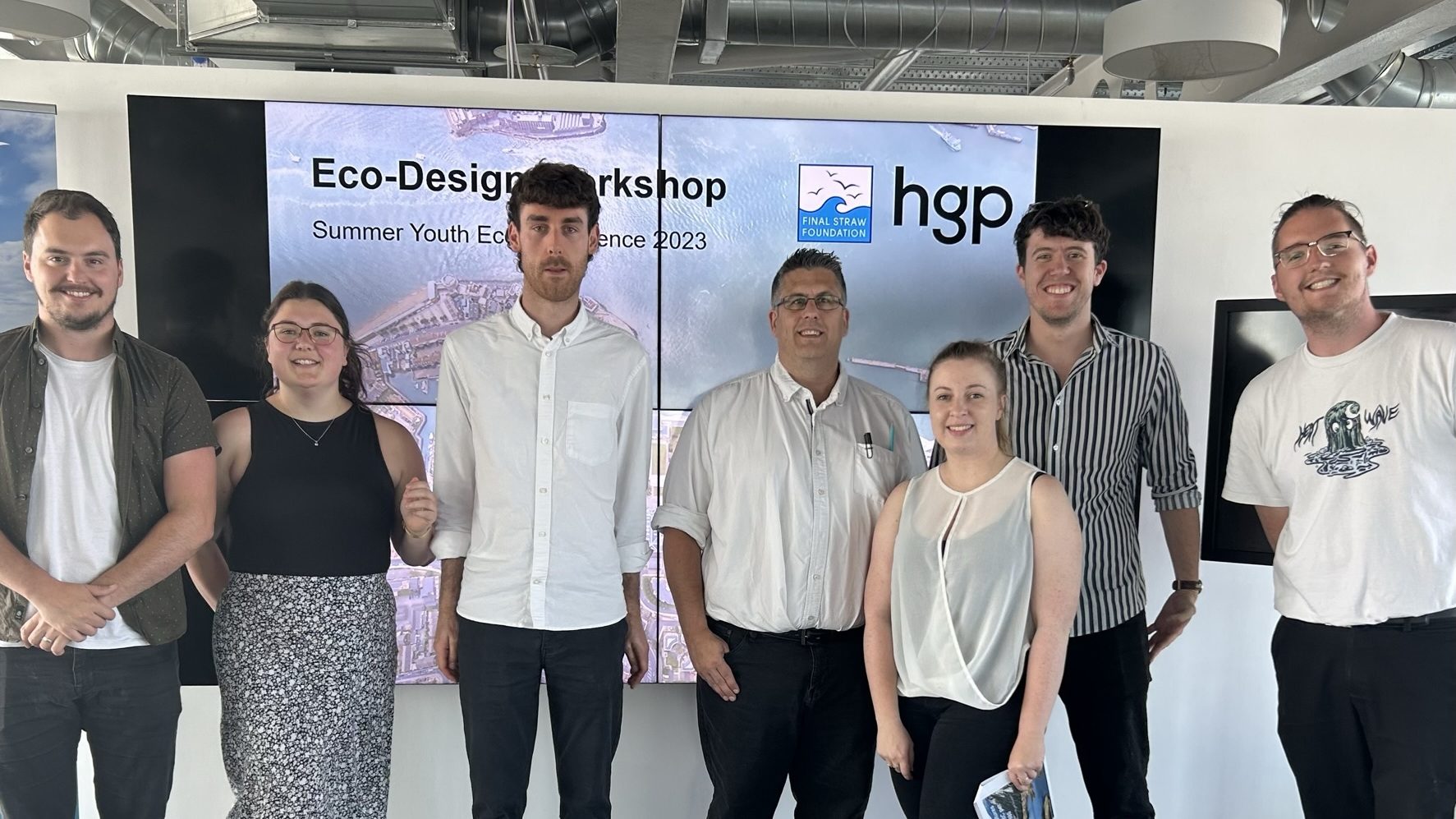
Inspiring New Eco-Designers
Being a part of the Eco-Conference was a fantastic opportunity for us to be involved with Final Straw Foundation, listen and engage with other key speakers who imparted their own specialist knowledge on environmental issues, and also inspire the next generation to make sustainable choices and make a difference.
To fit in with the conference’s themes of hope, innovation and environmental action, HGP’s goal was to educate the students on the virtues of eco-design and the way it can be achieved through innovative solutions, and we set them the challenge of putting this into practice themselves. Our workshop, which was centred around eco-design, got the children thinking about sustainability within the architectural industry and how thoughtful design could have a big impact on reducing waste, preventing climate change and saving our seas. And what could be more fitting than to get them designing their own environmentally friendly beach huts to be located on their favourite beaches!
Over the course of a few weeks, HGP collected numerous items of recyclable materials, including plastic bottles, cereal boxes, loo roll holders, and then tasked the children at the Eco-Conference with building a model beach hut, incorporating as many environmental concepts as possible, using the recyclable materials presented to them. This simple task was an introduction to problem solving through design: creating a structure to suit an outcome and desired needs but having to be mindful of material and environmental constraints. We were blown away by their detailed and carefully considered models incorporating environmental concepts such as solar panels, wind turbines, and rainwater harvesting! It was really rewarding to be able to get the students thinking about environmentally friendly architecture and sustainable designs, and talk passionately about architecture, inspiring the next generation to help solve the issues. Seeing their inspired ideas transition into beach hut designs for our activity workshop was another really great part about the day.
The immediate success of Final Straw Foundation’s Youth Eco-Conference was easy to see, with the enjoyment visible in all the students, but the longer term success can only be measured if we ourselves, other like-minded architects, and the architectural industry as a whole, continue to push for hope, innovation, and environmental action.